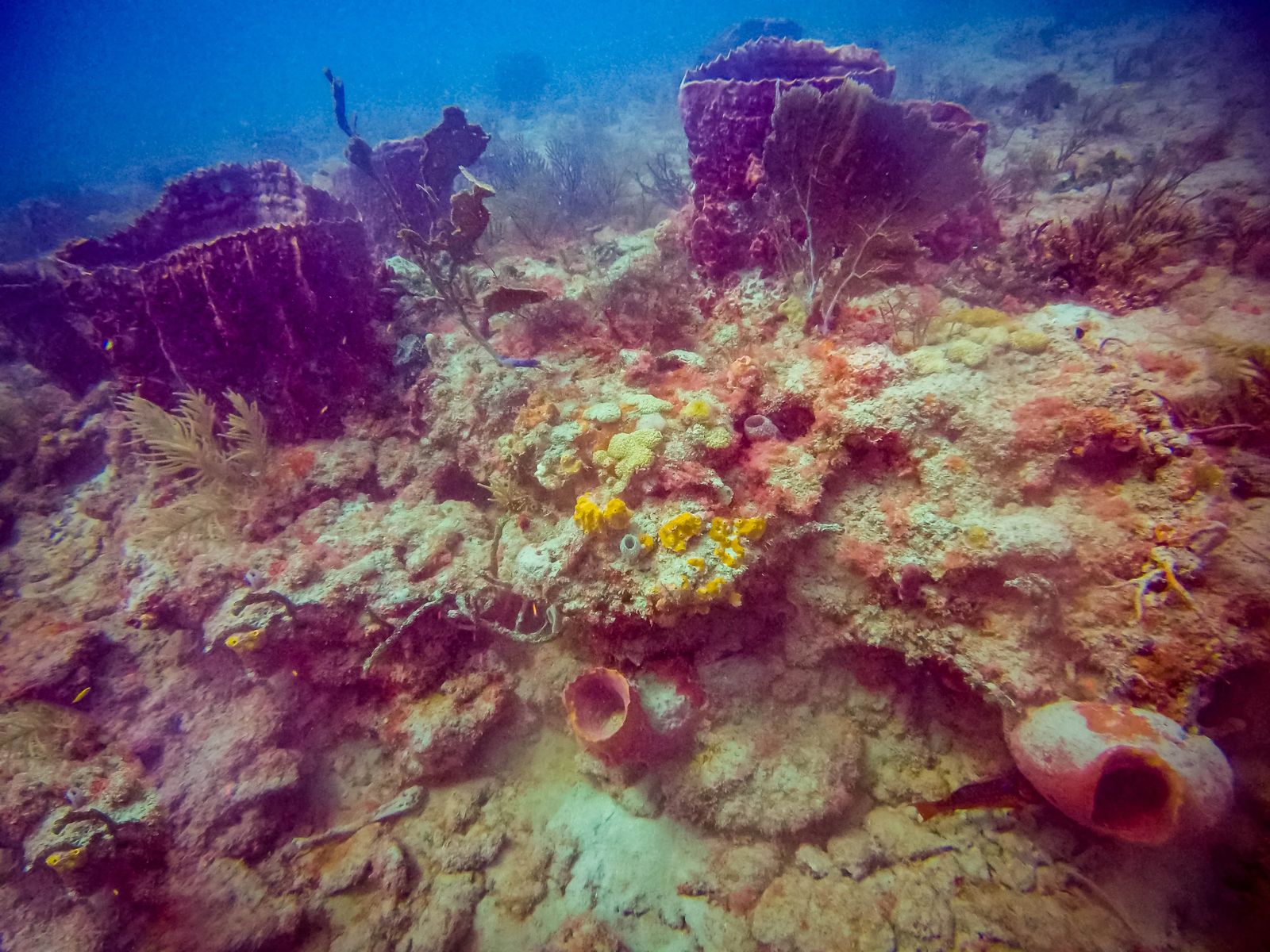
Tips for First Time Scuba Divers - Avoid Aquatic Awkwardness
No one likes to stand out or feel awkward in sports, especially me. If there were awards for awkwardness, I'm sure I would have a few by now. Maybe it is the elementary physical education classes where I farted while trying to do a sit up in front of the entire 6th grade that still haunts me, I dunno - it just isn't fun to feel awkward. So when I took up the new, posh, sport of Scuba Diving I dreaded getting in the water and looking like a fool. So after a few dive trips under my belt, here are my Tips for First Time Scuba Divers, and how to avoid aquatic awkwardness.
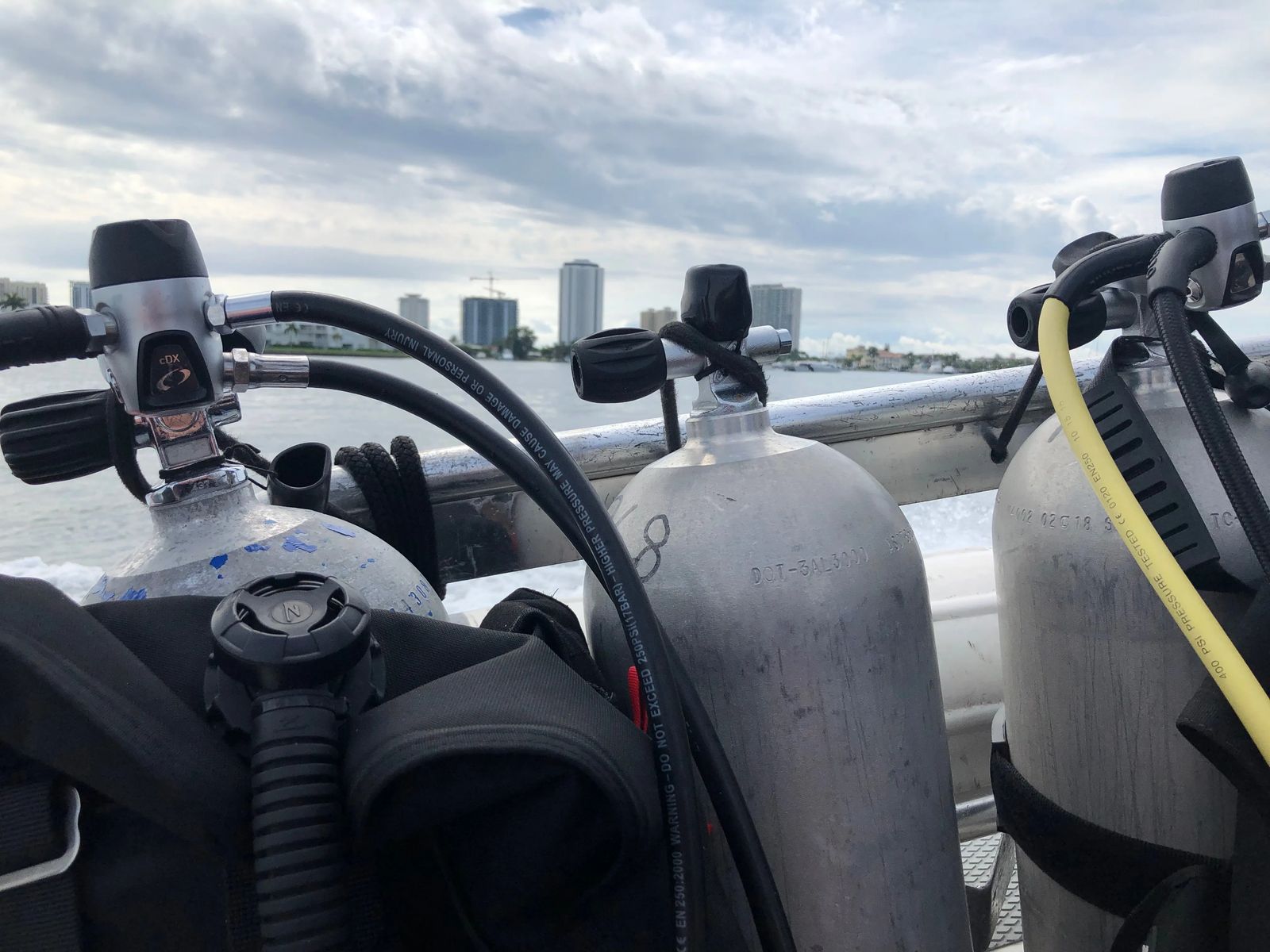
My Number One Tip for First Time Divers: Go To The Bathroom!
Going to the bathroom beforehand is the most important part of this entire tip. Do NOT get creative in your eating right before your first scuba trip. Yes some of the boats have the confined toilets, but if your bowels decide to become water instead....well, the whole boat will get to smell your innards the whole trip. The other part is, when you are under pressure, at depth and have a....shall we say intestinal civil war - you are going to be in a wetsuit and there is no escape from the dreaded explosion.
There is a natural physiological phenomenon that happens when a warm body is placed in cool water. It will make you want to urinate, so just let it go - most divers end up doing this. You are swimming in a marine life toilet anyway, so just consider it contributing to the minerals in the ocean.
Ladies, very important, do not plan on going diving with sharks if it is your time of the month unless you are in a cage - then it is fine.
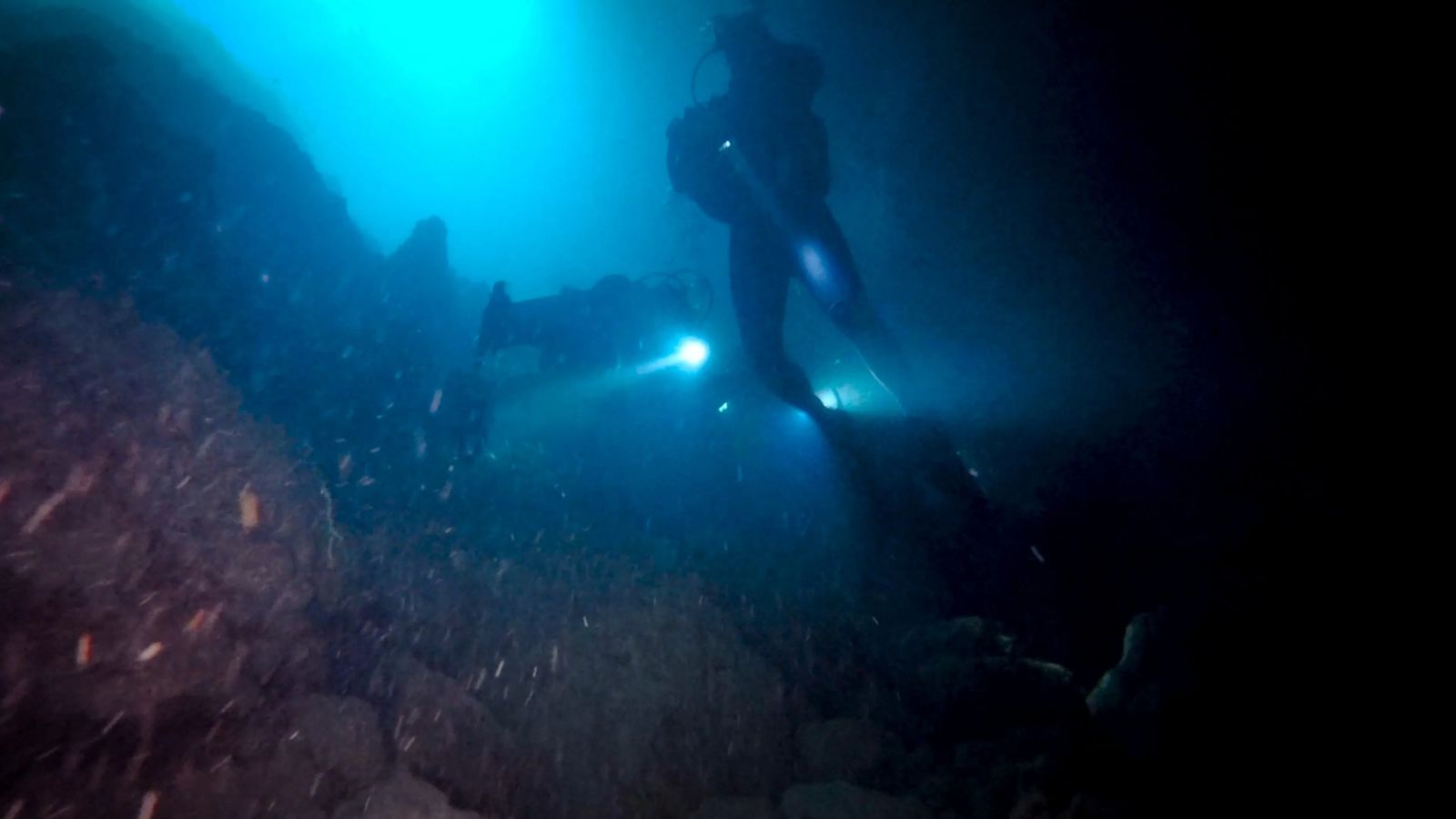
Keep it Clean
Make sure to keep your stuff neat and tidy. While there are different ways for everyone to organize, just make sure you are conscious of the common space on the boat. There are limited areas for you to put your belongings. There is a dry area (typically under the front of the boat on a ledge) where you can keep a small bag. Anything wet, that can get wet should be tucked under the assigned spot where your tanks are.
Keep your fins out of the walking area, as this is a tripping hazard and can land someone in the water with a 'man overboard'. Which you don't want to be on the receiving end of that when the individual gets back in the boat.
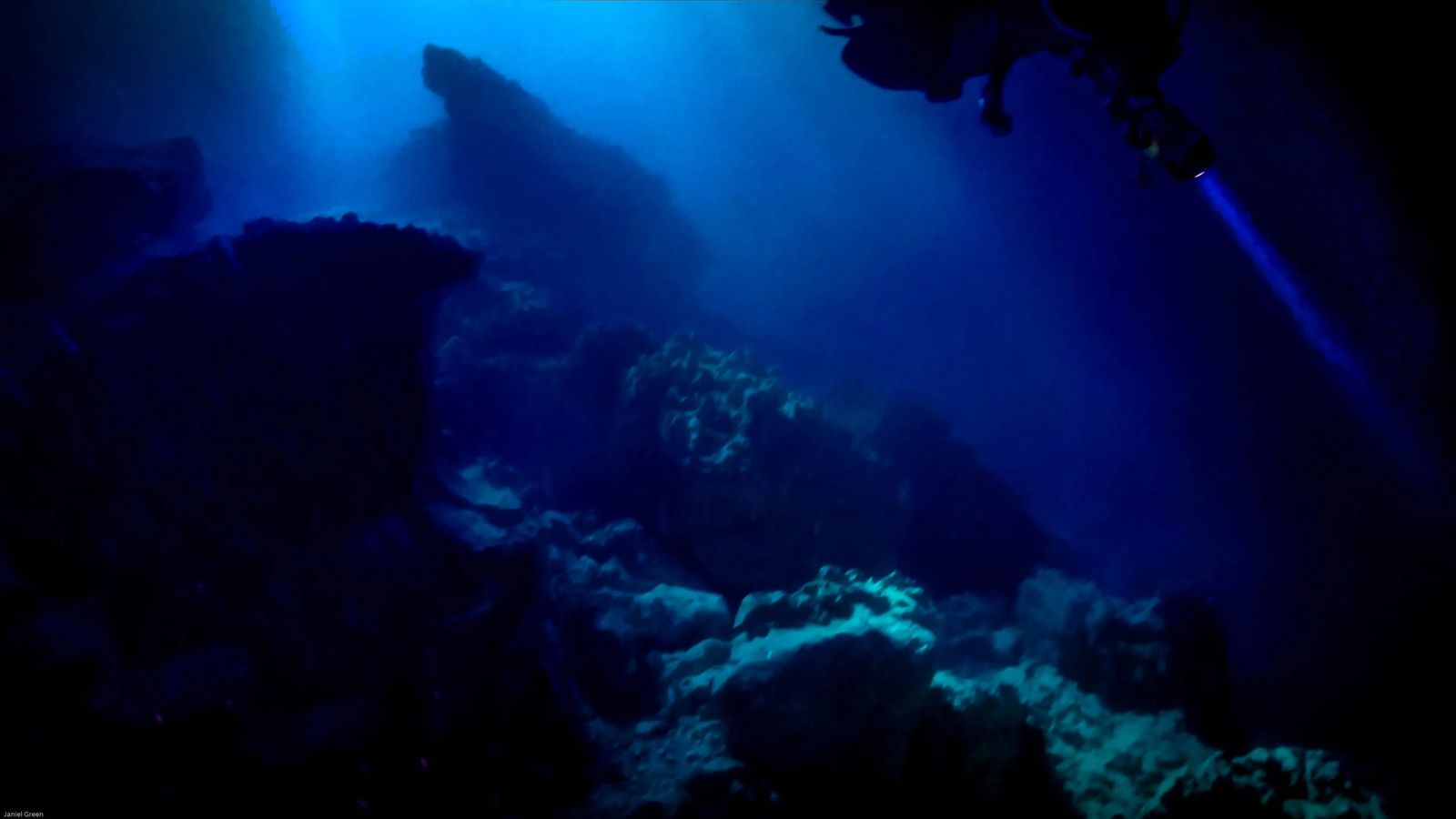
Bring Cash
There are a lot of things I remembered to bring on my first dive trip, and a few I didn't. No matter where you are in the world, a boat does not have an ATM card to give tips, nor do they have a cash register. So if you plan on giving a tip then be sure to bring that with you.
My Scuba Instructor Rachelle, from Scuba Utah, gave some good advice on this as she has been diving for the last 35 years, "It is pretty typical when on a dive trip to tip them 10-15% for the day (total, not per individual). Make sure to tip them on a daily basis, as the crew will or can change daily".
Bring a Photo Stick
I'm not talking about a selfie stick, I'm talking about a blunt 12" rod that you can clip to your BCD. When you are first starting out, and going from fresh water to salt water; or if you have lost a lot of weight or gained weight it can be hard to find your buoyancy. This small blunt instrument will allow you to gently push off surrounding rock and not crash into the delicate coral reefs.
I recently lost 25 lbs and wasn't quite sure on my weight I should have in salt water. Utah has all fresh water diving, and when you dive in Salt Water, your weight requirements are going to increase. So keep that in mind, and get the photo stick so that you are protecting the environment until your able to get a little more experience.
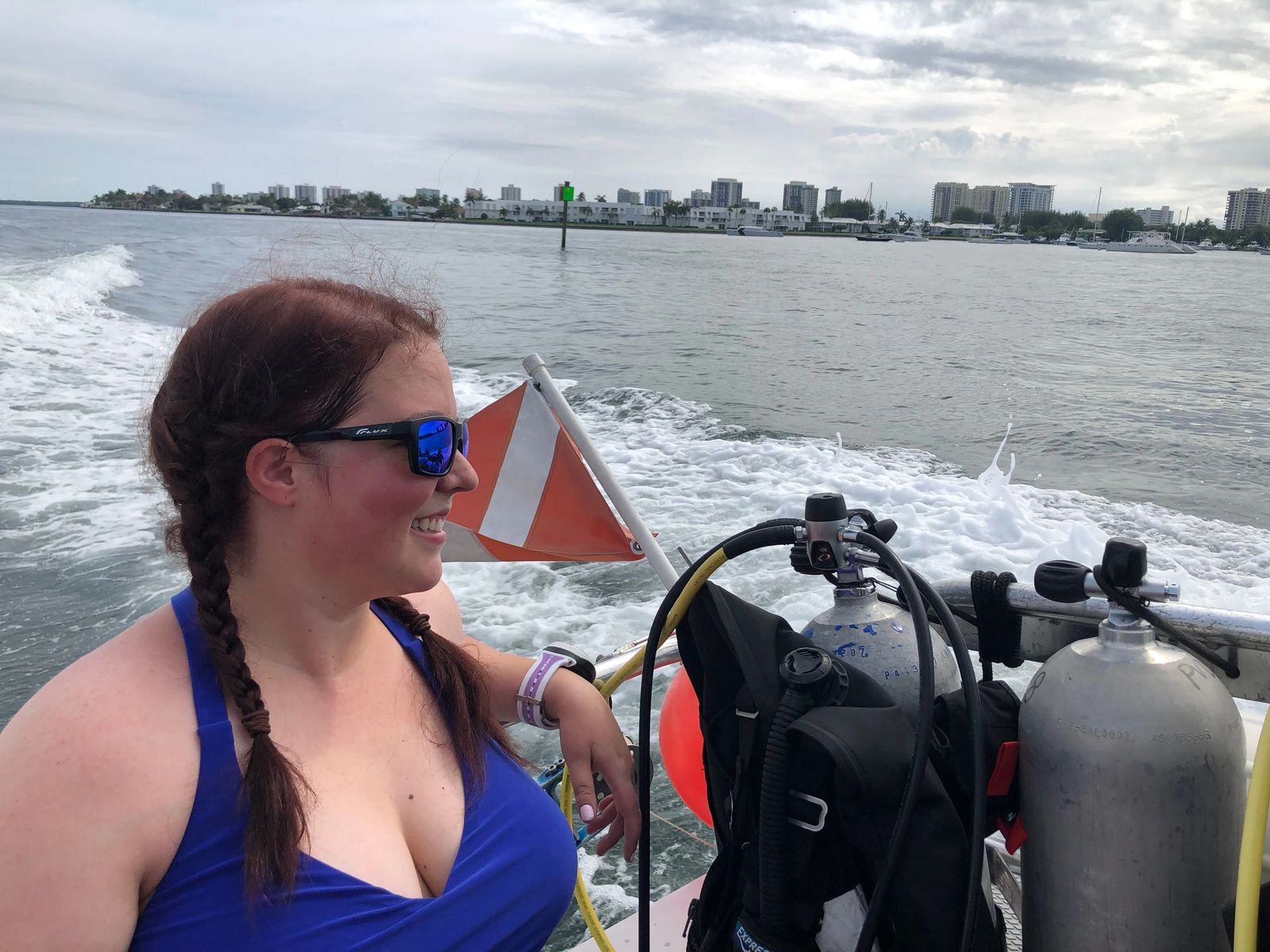
Get Reef Safe Defogger and Sunscreen
While on the subject of protecting the coral systems and reefs of the world I would highly suggest getting reef safe defogger and sunscreen. Here are a few I recommend: SurfDurt not only is it organic, it is also in a non-plastic container, so win win!
Hairstyle
There are a couple of different options for the ladies (or guys) with long hair and to keep it from becoming a rats nest when you get out of the ocean. One way is to use a swim cap. You want to make sure that it does not go underneath your mask, as this can let the water seep in. It keeps everything tame, and also adds a little extra layer to your head to keep in the heat without having to wear a hood.
Another option, which I learned recently, is to put leave in conditioner in your hair the night before (I'm talking quite a bit). I prefer the spray in kind, like Sun Bum Revitalizing 3 in 1 Leave-In Conditioner Spray (which is vegan and environmentally friendly). When you wake up, put your hair in two braids as tightly as you can get them. This works well for those with long hair especially. It looks great in underwater photos too! When I got back to my hotel, I couldn't believe how much easier it was to unravel my hair.
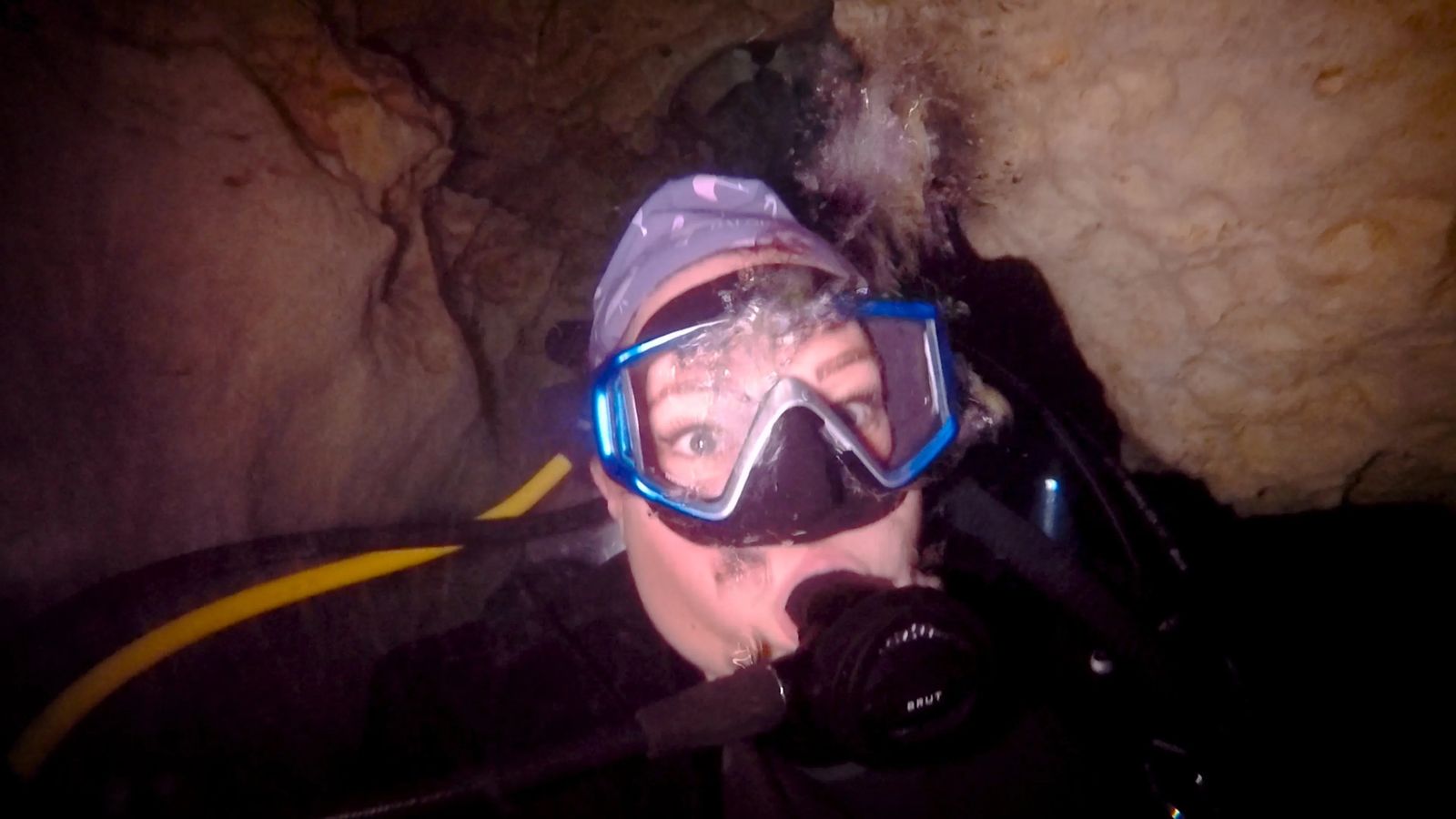
Watch That Air
I was guilty of this the last dive trip I went on. Again, being from Utah, pretty coral reefs, sea turtles, and sharks are in short supply here for divers. So when you see these animals in person, it is easy to get enamored with them and taking video of it that you lose track of your air. Luckily I had a dive buddy who I had warned her about this prior to diving and she caught me at 800 on my tank pressure. We started to head for our safety stop, and the more shallow we became the harder it was to stay down despite the extra weight that I added. I have never swam so hard to stay at 15 feet in my life as BCD and tank were trying to skyrocket me to the surface. I burned through 300 PSI in 1:30 min and surfaced before my 3 minutes were up with 400 PSI.
This could have gotten me in big trouble, and her in big trouble. So now I'm fully aware that each time I see marine life that is interesting to me, I need to check my air. Luckily I wasn't diving deep enough on that dive to put me into decompression sickness, but I don't ever want to take that chance again.
For the Asthmatics or Those With COPD
When you have Asthma, or COPD you can still go Scuba diving, but have to be aware of a few things. You have a form of air obstruction, which means air gets trapped in your lungs more easily than the average joe (or jane). This can significantly affect your bouyancy when you get fatigued.
When a person with Asthma or COPD is fatigued, air can get trapped. This will require you to add more weight to counter this. Think of trying to get an inflated balloon to descend on a dive. It is nearly impossible, unless you have a tow rope to pull you down with the balloon. This is the same idea when you go diving. So if you are out of shape or fatigued, I would suggest adding an additional 2-4 lbs of weight to your BCD so that you can stay down during the safety stop as you start to surface. (A lesson I have had to learn the hard way).
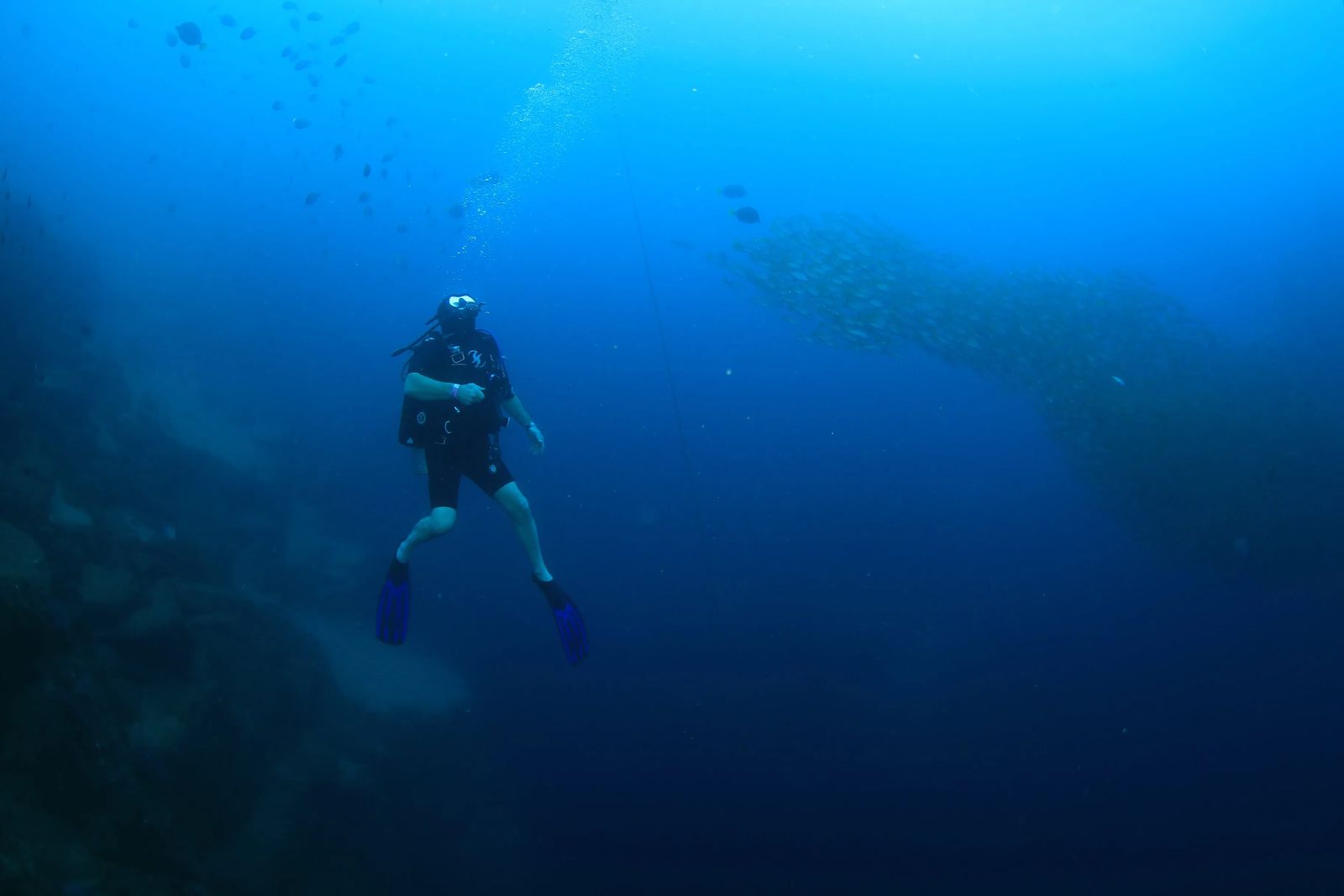
The Noise
Rachelle taught me in my Scuba Class, that noise underwater will be amplified. Being very sensitive to sound above land, I was a shocked at how much sound carries underwater.
My first time diving in Cabo San Lucas, was my first real ocean dive. Our first dive was near Pelican Rock, with the boats zipping back and forth above us to take tourists to see the Sealions. While it was fun to see the Sealions playing underwater in Cabo, the noise from the boats felt like it was a tourist trap both above and below ground.
Once I realized what was going on, it was easier to isolate and tune out the buzzing of the engines above me. It is quite distracting though when your descending for the firs time, so stay close to your diving buddy and the instructor.
Motion Sickness
Motion sickness can happen in many different places, and is different for everyone. For example, I do not get sick on boats big or small, but get me in the back of a tour bus and I will be green as a tree within the first ten minutes. There are many options for Motion Sickness so be sure to read my recent article on different ways of treating this and avoiding it in the first place.
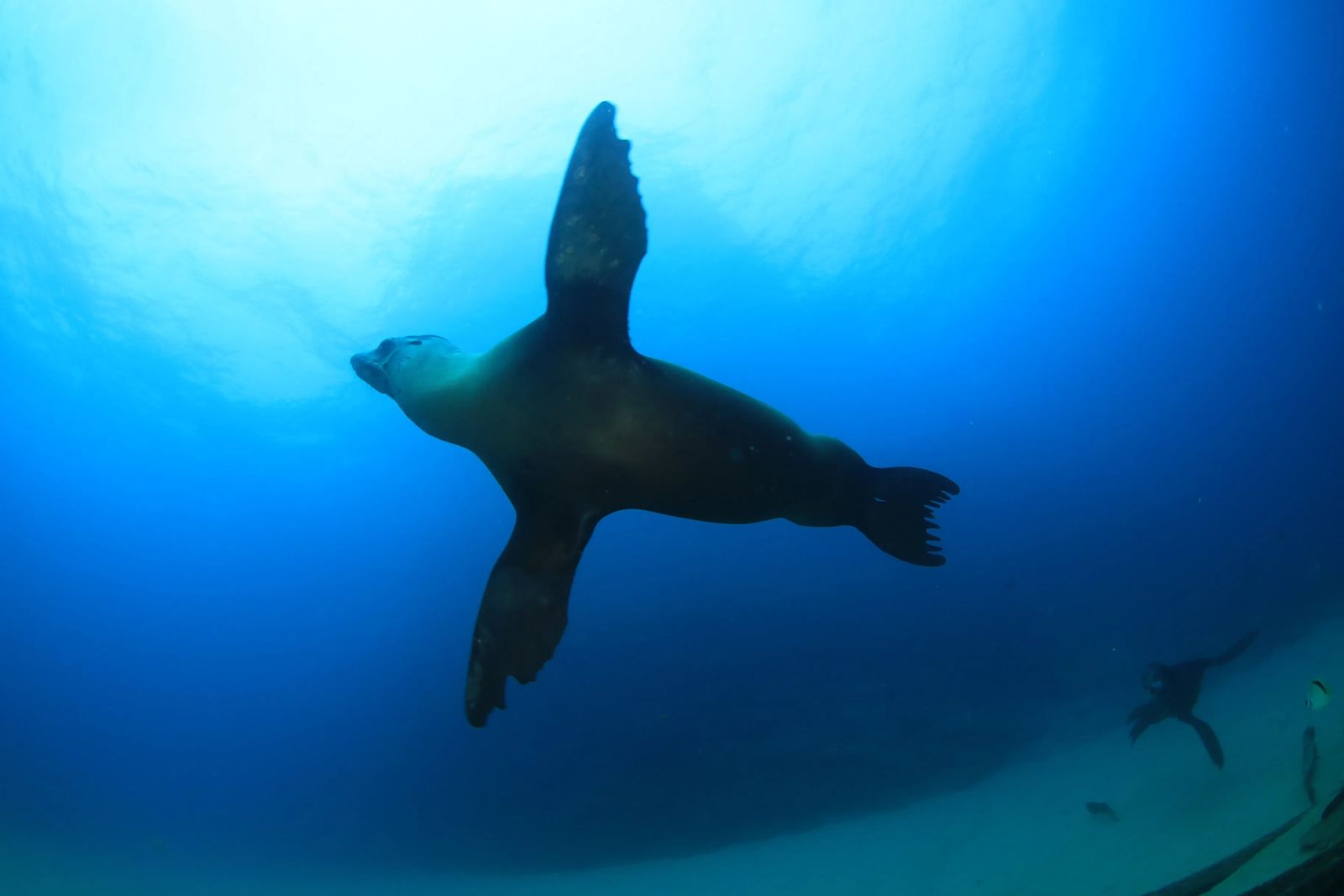
Allow 18-24 hours Before Flying
Even some of the most experienced divers, forget about this rule. It can affect the incidence of Decompression sickness due to the altitude, and Nitrogen needing to fully 'off-gas' or dissolve before flying.
I typically give myself 24 hours, just to make sure I won't get sick. While this is more important for live aboard diving where you are doing multiple dives per day over several days. It is good to get into the habit, so you don't forget in the long term like many divers end up doing.
Know How To Self Calm
The Scuba Magazine reported that 20% of diving accidents are caused by people panicking. So knowing how to calm yourself while underwater is key to beginner divers.
On my last dive, I was so nervous before getting into the water for some reason. I quietly asked my friend Jen, from Coleman Concierge, 'Do you get nervous before dives still?' She said, 'After all the dives I have been on, all the years I have done this. This year has been the first year where I haven't felt nervous before a dive'.
I have PTSD, and anxiety at baseline - I also almost drowned as a child after getting stuck under a bridge during a river tubing trip. So I had to learn very quickly underwater, that simply maintaining bouyancy, making a specific handsignal where both hands are up in a stop gesture - signals to my diving buddy that I just need a second to calm my nerves.
After getting an ok from my dive buddy that they understand and come closer. I hang onto their BCD, close my eyes, and concentrate on breathing slowly until the wave of anxiety passes.
If the wave of panic or anxiety is bad enough, or you can't self soothe. Just gesture to your diving buddy that you need to end the dive. Be kind to yourself, and like Rachelle always says - 'It is normal and ok to be nervous. Never be afraid to end a dive if you feel uncomfortable'.
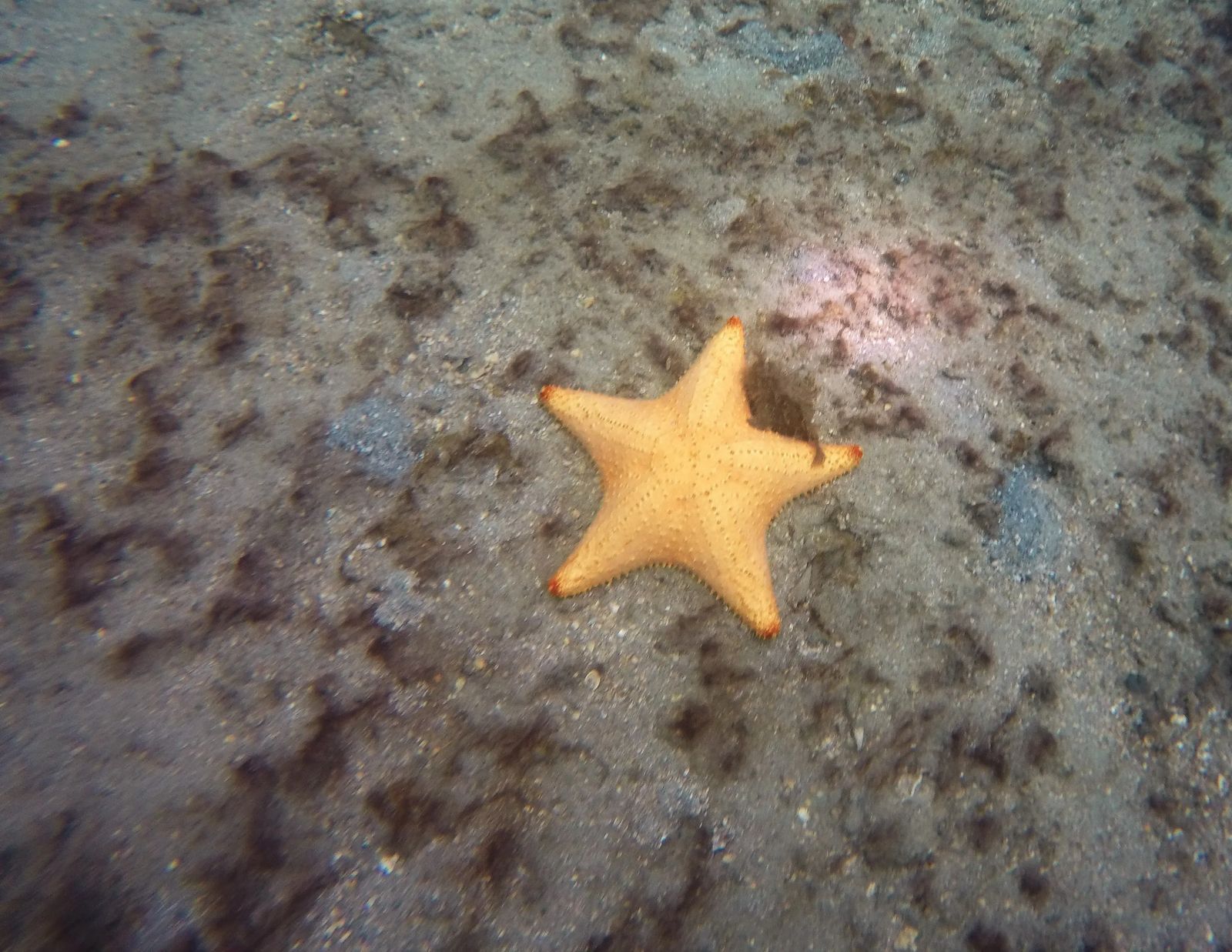
Tips for First Time Scuba Divers From A Professional
I asked my instructor, Rachelle, for some of her input on things that she would strongly recommend to new students. Having 35 years of experience and teaching hundreds of students, and Veterans with PTSD, Here is what she suggested:
Dive within your limits - don't try to appear cool, or think you are the weak link by voicing something you are uncomfortable with.
Do not try to dive outside your training or your equipment requirements. You will put yourself at risk, which you have that right to do if you wish - but more importantly, you are putting your dive buddy, and dive master at risk which is absolutely NOT ok to do.
Respect the boat and the crew no matter how much you think you know. They know the area better than anyone, and they know what works best for the conditions in that moment. So even if it seems ridiculous, offensive or childish - just do what they ask with a smile and complain when your done with the dive.
Be aware of your surroundings. Our brains aren't trained to protect us underwater, so just keep in mind to keep an eye above, and below you. You could stuck between a person who can't keep their buoyancy and a Moray Eel. You might be confidant in your abilities, but there are other people you can affect by not being aware.
Leave only bubbles, take only picture. While it might be tempting to pick up that starfish, or take that giant seashell home as a souvenir. Just leave it alone, and let the next diver appreciate it as you did.
Don't touch, tease or harass aquatic animals. There are so many marine animals that may look harmless enough, but can be quite deadly.
Keep your mask OFF your forehead! This is a universal sign of distress that Master Divers are trained to recognize. So when you do this, it can cause all sorts of chaos that is not needed. Keep the mask on your face until you are back in the boat and even then don't make it a habit.

Create Your Bucket List!
The Diving community is a tight knit community, that generally is quite supportive. Reach out to those in your community, take a dive class, and then create your bucket list of Diving. I asked my fellow divers for their Top Dives From Around The World, and now have my own Diving Bucket list I'm working through.
If you have any Tips for First Time Scuba Divers, be sure to drop them below and connect with the Culture Trekking Community on Facebook or Instagram; arrange a few dive trips with other members of the community.
Like it? Pin it! Sharing is Caring!
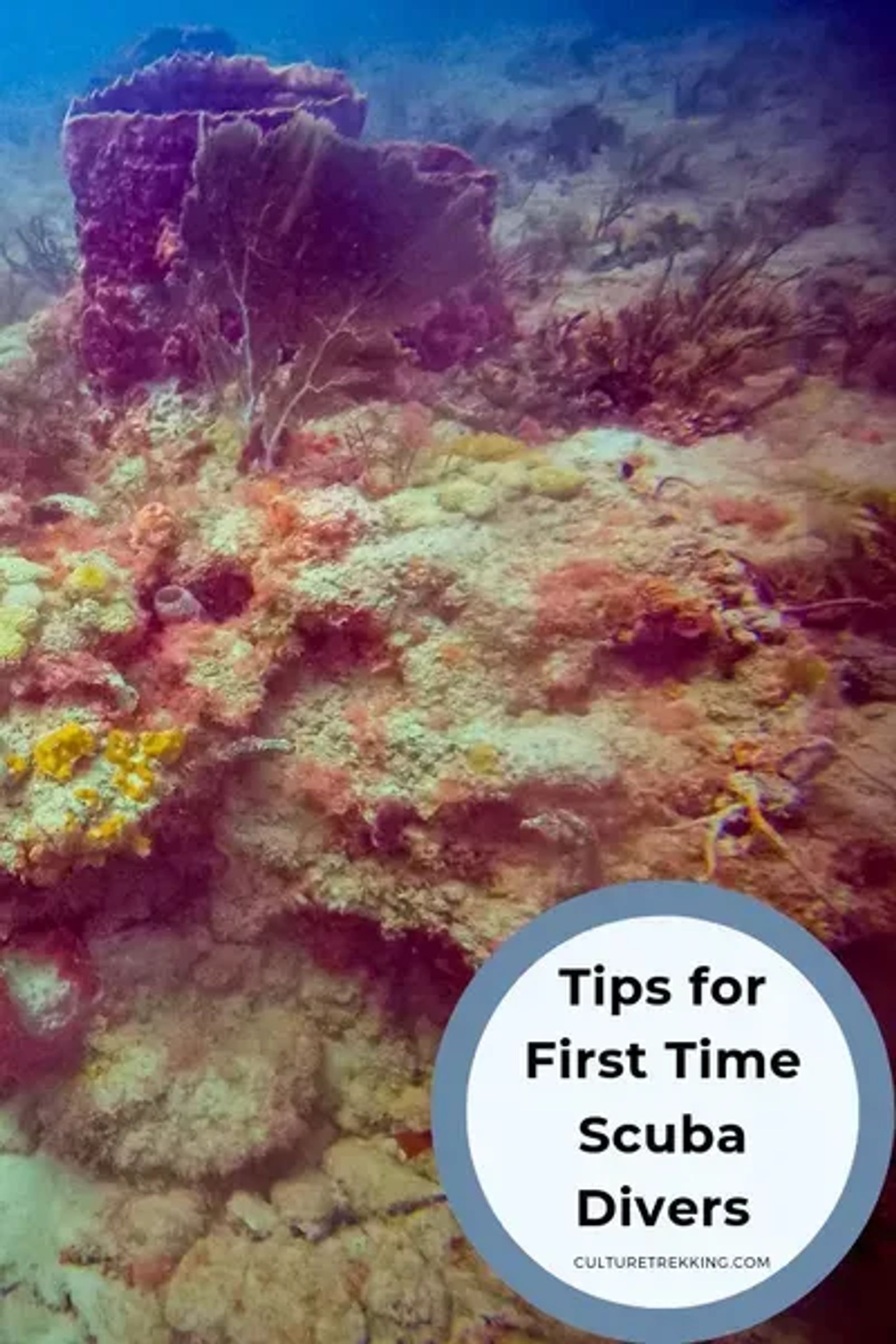
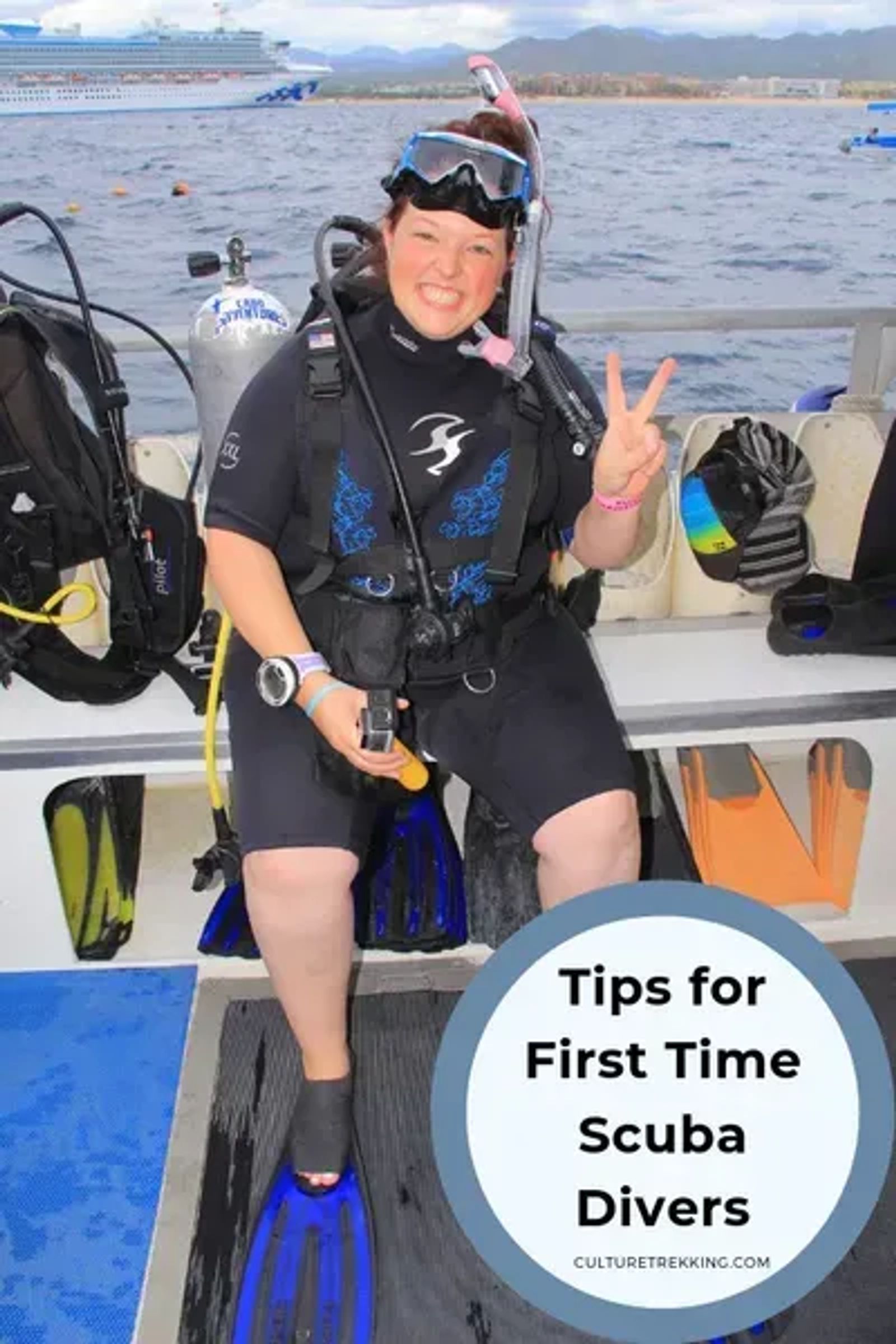
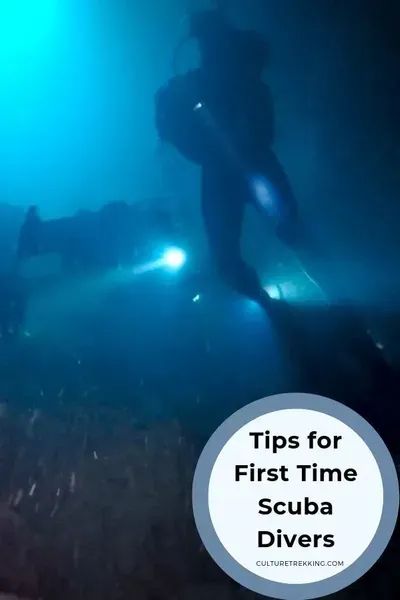.webp?fit=outside&w=1600)


Welcome to Culture Trekking!
My name is Janiel, a leader in the travel industry with over 20+ years of experience with international travel. I specialize in solo female travel, cultural connections, sustainable adventures, food and history to help make your travel experiences fun, meaningful, and delicious. My experience in travel, and my personal story have allowed me to get published in Fodor's Travel, Atlas Obscura, Metro.co.uk, Trip Advisor, and multiple Podcast interviews. You can find me on pretty much every social media channel YouTube, Instagram, Twitter, Facebook, Pinterest, TikTok. To read more about me and my story click here. If you are a brand and would like to work with me, click here.


